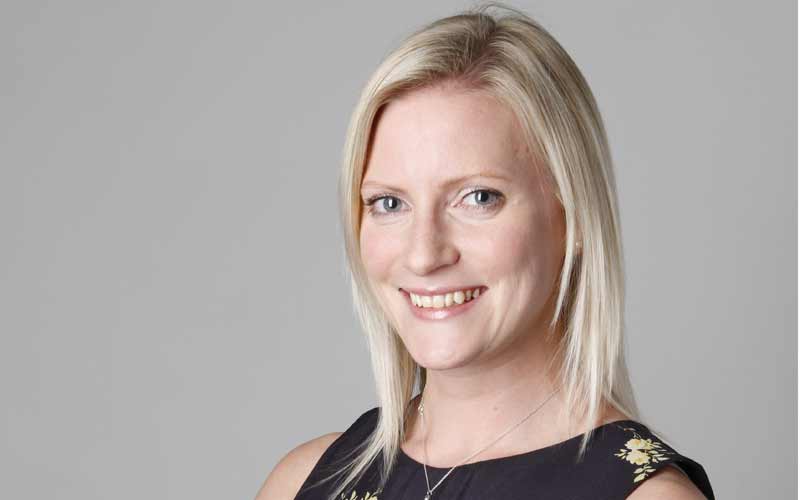 Louise Oakley is a freelance hotel, food and travel writer and PR professional based in Dubai, and a contributing editor to Hotelier Middle East.
Louise Oakley is a freelance hotel, food and travel writer and PR professional based in Dubai, and a contributing editor to Hotelier Middle East.
The world’s first hotel staffed by robots has been operating in Japan for more than a year now. Multi-lingual robots in all guises manage check-in, concierge and luggage services at the Henn-na hotel in Nagasaki, while facial recognition replaces room keys and guest room mini robots look after lighting and temperature controls.
The hotel recommends “conversing with the warm and friendly robots” and promises guests a unique experience that will take them “one step into the future”. It’s been so successful that operator Huis Ten Bosch Inc. plans to open three more Henn-na hotels in Osaka and Tokyo. Of course, it doesn’t take long for trends to hit Dubai, and just last month it was revealed that the upcoming Rosemount Hotel & Residence is expected to feature robotic hosts in its lobby.
It’s not only hotels that have started using robots; Swedish news agencies use robots to write short news items; Japanese retailers use a robot called Pepper to sell everything from mobile phones to coffee; Apple’s digital voice assistant Siri answers our every whim; and cars, right here in Dubai, will soon drive themselves.

| Advertisement |
According to futurist Claudia Olsson, CEO and founder of Exponential Holding AB, this is just the beginning. The latest developments in wireless communication, artificial technology and sensor technology will make robots better and cheaper, so it’s only matter of time before robots will become commonplace — at home, at work and in hotels.
Olsson works with companies to identify disruptive technologies that will affect their business, and is currently the Swedish government’s advisor on future technology, helping to develop a vision for a fully digitalised Sweden. She’s passionate about understanding the potential of technological developments and when it comes to hospitality, believes that Artificial Intelligence (AI) will “contribute to a largely redefined hotel sector”.
“Service industries like the hotel industry have great potential of developing greater value for its clients through the new technology,” says Olsson. “AI can, for example, benefit customer service industries by handling repetitive tasks more efficiently. Employees will thus be able to focus more on advanced tasks and customer services.”
“The AI can also help optimise the customer experiences by tracking happiness and other reactions at various stages of the hotel visit. ‘People-Literate-Technology’, which is integrated in the hotel, as well as augmented reality, which complements the physical space, can help to heighten the hotel experience,” she says.
Normally, developments like this that make business more efficient, cost-effective and results-driven, are welcomed. Wouldn’t it be great to do away with antiquated customer satisfaction surveys, and measure responses as they happen?
However, the growth of AI and its integration to society is seen by many as a threat. Will robots take our jobs? Will they be cleverer than us? What if they turn against us?
There’s no doubt that robotics will herald major changes in the modern workforce, just as the mechanisation of agriculture remodelled farming in the 18th century, paving the way for the Industrial Revolution, which transformed the face of manufacturing. Neither of these created unemployment; instead new jobs emerged, just as in the 21st century, the digital industry was created, employing millions globally.
On the issue of what roles AI will replace in hospitality, versus the opportunities it will create, Olsson says AI will handle what are known as the 3D jobs — dirty, dull and dangerous — as well as a large amount of administrative work.
“Tasks such as room cleaning, laundry services, restaurant dishwashing, waiting and clearing tables, but also booking and check-in and other more simple and repetitive tasks [could be handled by robots],” says Olsson.
“This implies that we as humans need to develop our skills and competencies in areas where we have a head start and where AI will not be as flexible, conscious, creative and problem-solving as we are. Jobs that could be created in the hotel industry entail tasks that heighten the service experience but that can only be offered by humans through personal interaction, but also positions that oversee, maintain and repair the AI components, and continuously improve them to be better tailored to the customers’ needs,” she adds.
The most important action right now, urges Olsson, is for hoteliers to start exploring in which areas of the hospitality business AI could be most useful.
In an industry with enormous labour costs and a growing recruitment challenge, especially in this region where room inventory ramps up annually, surely automating some roles would be a positive move? Perhaps, it would even finally omit the age-old problem of service consistency and quality.
Or is the human touch more important in hospitality, even if it is fallible?
About the Author: Louise Oakley is a freelance hotel, food and travel writer and PR professional based in Dubai, and a contributing editor to Hotelier Middle East. Contact: louise.oakley@os.itp.com








 Search our database of more than 2,700 industry companies
Search our database of more than 2,700 industry companies









